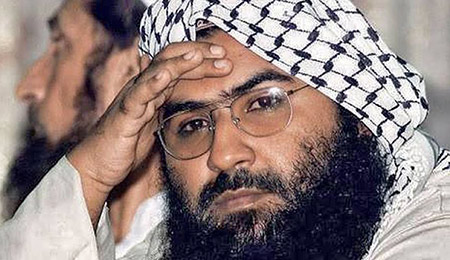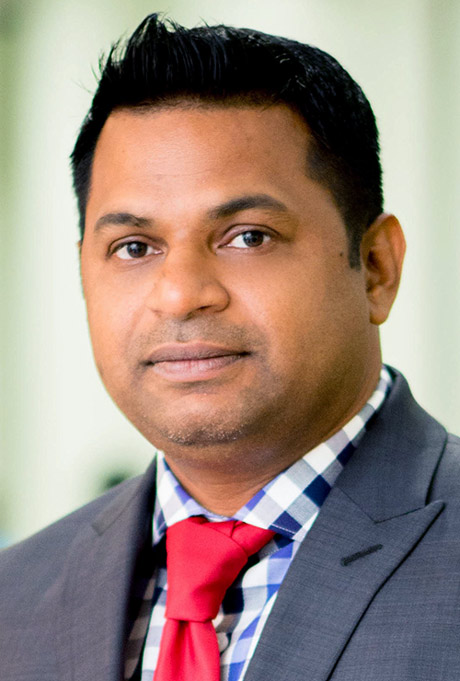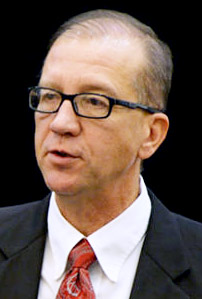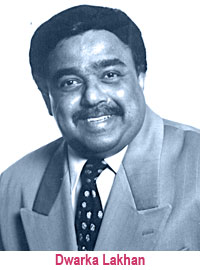possibly funding of Pakistani militants

Toronto – The Federal government has revoked the charitable status of a Canadian Islamic organization after an audit uncovered problems including tax receipts that were issued for donations to a Pakistani group linked to armed militancy.
ISNA Islamic Services of Canada was stripped of its charitable status for “non-compliance,” according to a report by Global News. Authorities also revoked a related charity, the Canadian Islamic Trust Foundation. Both are former affiliates of the Islamic Society of North America-Canada (ISNA-Canada), and shared its Mississauga, Ontario address.
The Canada Revenue Agency took action four years after the ISNA Development Foundation lost its charity status over fundraising for a Pakistani relief group linked to militancy in the disputed Kashmir region.
Among the findings that led to the latest two revocations was that ISNA Islamic Services tax receipts had been issued for collections by a Toronto mosque for the “charitable arm” of a Pakistani group whose armed wing was fighting Indian forces.
The money, raised by the Toronto-based Jami Mosque, was passed to the ISNA Development Foundation “for remit” to the Relief Organization of Kashmiri Muslims (ROKM), the CRA Charities Directorate alleged in the newly-released records.
“Our research indicates that ROKM is the charitable arm of Jamaat-e-Islami, a political organization that actively contests the legitimacy of India’s governance over the state of Jammu and Kashmir, including reportedly through the activities of its armed wing Hizbul Mujahideen,” the CRA wrote.

“Given the identified commonalities in directorship between ROKM and Jamaat-e-Islami and the Hizbul Mujahideen executive committee, concerns exist that the funds collected and disbursed as part of this relief fund may have been used to support the political efforts of Jamaat-e-Islami and/or its armed wing Hizbul Mujahideen.”
The leader of Hizbul Mujahideen, Syed Salahuddin, was placed on the U.S. State Department’s list of designated terrorists on June 26. He had threatened to train suicide bombers and turn Kashmir “into a graveyard for Indian forces,” the listing said.
“As the federal regulator of charities, the CRA contributes to the government’s efforts to combat terrorist financing by protecting the charity registration system in Canada from abuse,” said Zoltan Csepregi, a CRA spokesman.
Csepregi said the CRA regularly exercises its authority to notify CSIS, the RCMP, and the Financial Transactions and Reports Analysis Centre of Canada when there are concerns that an organization is providing support to terrorism. However, he declined to comment on specifics for confidentiality reasons.
On its website, ISNA-Canada describes its mission as “building an Islamic way of life in North America.” It performs marriages and funerals, aids Syrian refugees and held a seminar on radicalization. It remains a registered charity with reported revenues of more than $3-million in 2015.
Audits of ISNA-Canada and its former affiliates began in 2011, said Syed Imtiaz Ahmad, the ISNA-Canada president and chair of ISNA Islamic Services. He said the audits were ordered after irregularities were brought to the CRA’s attention. Four charities were audited because the CRA suspected they were “in a sense indistinguishable,” he said.
The audits covered the years 2007 to 2009. But it wasn’t until June 2014 that the CRA informed the charities they risked losing their registration. ISNA Islamic Trust was also told it could face a $425,000 penalty.
It’s unclear why the CRA waited three more years before following through with the revocations of ISNA Islamic Services and the Canadian Islamic Trust (CIT), which came into effect on May 13. But in letters dated March 30, the CRA said that after reviewing the charities’ written responses to the audits, the government’s concerns had “not been alleviated.”
According to the records, ISNA Islamic Services had failed to keep proper donation records and had funded two separate organizations, the Islamic Centre of Toronto, known as the Jami mosque, and the Islamic Book Service, without exercising control over either group.
It had also issued $340,000 worth of receipts for money collected by the Jami mosque.
on what’s ahead

With its many unanswered questions about the future of Guyana with oil as one of the main resources contributing to the country’s economy, GCCI invited an executive of ExxonMobil to the event as well as Minister of Natural Resources, Raphael Trotman. While ExxonMobil’s Operations Manager, Doug Mc Gehee attended the event, Minister Trotman, who was expected to give the forum clarity on many issues, was a no show.

He then expressed hope that Trotman can make a few things clear to the members of the Chamber who were present at that forum.
“Minister, in your delivery, I would like to first charge you to give this gathering of great minds here your thinking and intention on the local content policy that is currently in its draft stage, in terms of: the date we should expect an approved policy? And, what model was used as a framework to develop the current draft policy?”
With respect to the Petroleum Commission Bill that is before a parliamentary select Committee; Indar said that the GCCI is very interested in knowing: “What external model was considered in the drafting of the bill? And, was it Newfoundland, Norwegian, Australian, Alaskan?”
Also, Indar expressed hope that the Minister would explain the proposed Petroleum Commission Board and its makeup, independence, appointment, remuneration and removal of Board members.
Further, the GCCI president wanted to know how the bill meshes with good governance, transparency and bi-partisanship.
“We see from many parts of the daily media and on social media that we have the potential to be a wealthy nation with flow of oil money. Guyana can witness an economic explosion with the Gross Domestic Product (GBP) growing between 400 to 2000% in the next two decades.”
He continued, “We also know as seasoned business people that basic management principles dictate a company with a diversified base of products and services are likely to be healthy and sustainable, these same principles apply to running a country.”
The businessman said that it is imperative that Guyana learns from the mistakes of others and recognizes that any country that has its economy dependent on one or two sectors will be doomed by it in the long term. He pointed to what is going on in Venezuela where 95.6 percent of its economy is dependent on oil which among other things has fractured its society. Indar said that a diversified economy will lead to a sustainable economy.
With that being said, Indar expressed hope that Trotman can shed light on government’s plan to ensure a diversified economy.
Indar said too that the GCCI hopes that the government is already working on strategies for the most effective use of oil revenues. He said, “We would like to see expenditure in the area of: education, healthcare, infrastructure such as bridges, roads, ports, ICT, quality infrastructure and programs for the alleviation of the poor.”
Finally, Indar turned his attention to the outstanding Sovereign Wealth Fund policy.
He noted that the Sovereign Wealth Fund is supposed to be a rainy day fund. He said however that the GCCI found that some countries use monies from their Sovereign Wealth Fund for current year running expenditure that are supposed to be funded from normal revenue cycles of government. Indar expressed his opinion that, “this is not what a SWF should be; I have just described what would be tantamount to putting your money in a bag with holes if government is to take this approach. I warn against it.”
The President of the Chamber said that it would be welcomed if Trotman can give explanations on: “What model was used to develop the framework for the SWF and when would we expect a first draft to be released so we can provide commentary?”
While all those answers requested by Indar remain outstanding, a few questions were answered by ExxonMobil’s Operations Manager, Dough Mc Gehee. He gave those who gathered a detailed run down on the operations. Mc Gehee noted that the overall estimation of oil already discovered in Guyana is now between 2.25 billion and 2.75 billion oil equivalent barrels. This, according to Mc Gehee, represents oil bearing rocks found in Liza one, two, three and four wells, Liza deep, Payara and Snoek. He reminded that oil was not found in commercial quantities at the Skipjack well.
Mc Gehee even joked that when Skipjack was found empty, they decided that the luck was with Liza so they named the others Liza three, Liza four and Liza deep.
The Operations Manager said that ExxonMobil is committed to exploiting the full potential of the Stabroek Block and “so we will keep drilling.”
He said that about 120 barrels of oil will be produced a day for the first 20 years in Guyana.

By Dwarka Lakhan
(2nd of 3 Parts on Money Laundering)
In the eyes of the Guyana government, it has done everything to comply with international best practices to prevent money laundering.
But obviously it hasn’t. Arguably, putting the relevant legislation in place is one thing but ensuring compliance is another. And in spite of a slew of allegations about money laundering, no substantial charges have been laid. In its March 2017 “International Narcotics Control Strategy Report– Money Laundering
The US State Department recognizes that Guyana has legislation in place to counter money laundering but notes that the Financial Intelligence Unit which has the mandate to detect, prevent and deter money laundering and financing of terrorist activities is severely understaffed and ineffective – although it admits that its functional capacity is progressing.
The EC, on the other hand, lists Guyana among 11 countries that have strategic deficiencies in their anti-money laundering and countering the financing of terrorism regimes. The 10 other countries which are on the EC’s blacklist include Afghanistan, Bosnia, Herzegovina, Iraq, Lao PDR, Syria, Uganda, Vanuatu, Yemen and Iran – putting Guyana is dubious company. Apparently, the EC had recommended that Guyana be removed from the blacklist and be replaced by Ethiopia but the European Parliament rejected the recommendation – highlighting the seriousness, real or perceived, of Guyana’s money laundering problem.
While visiting Europe in June, President David Granger, called for a speedy resolution of the issue regarding the European Union (EU) Parliament’s opposition to Guyana’s removal from the money-laundering blacklist. He is reported saying that the country has done everything to comply with international best practices relating to open, transparent and responsible government and urged EU leaders to reconsider their position on blacklisting Guyana.
The European Parliament contends that the EU should have an independent, autonomous process for judging whether countries pose a threat of financial criminality rather than relying on the judgement of an external body – apparently referring to the Caribbean Financial Action Task Force (CFATF), an arm of the European-based international body, the Financial Action Task Force (FATF) which removed its blacklist in October 2016.
Evidently, being blacklisted doesn’t necessarily have anything to do with having a transparent and responsible government – as Granger contends.
In identifying the structural reasons for blacklisting Guyana, the US State Department report identifies several situations which can facilitate money laundering.
It states that there is a culture of using informal networks to move money between Guyana and the diaspora and that many criminals use cash couriers or familial networks to move large sums of money between Guyana and the United States.
This is primarily due to the fact that Guyana has a large cash-based economy. In cash-based economies money is typically “cleaned” through physical deposits of cash proceeds derived from illegal activity into the banking system.
There are several methods of cleaning money, among them, smurfing, layering, co-mingling, bribery, smuggling and paying cash for large ticket items.
In the case of smurfing, large amounts of cash are broken up into smaller less conspicuous sums and deposited directly into one or more bank accounts over time.
With co-mingling, criminal proceeds are mixed with deposits from cash-based businesses such as retail stores, bars, restaurants and businesses associated with tourism. This requires collaboration with the owners of these businesses and in some cases such businesses are really “fronts” for money laundering.
As well, in cash economies, personnel from banks and other financial institutions can be bribed to accept large deposits without reporting them, especially in countries which have limited tracking mechanisms in place.
Another method of disposing illegally obtained cash is by smuggling “suitcases” of cash into countries which do not have diligent money laundering requirements for deposit into the banking system; or into countries which may have strict money laundering rules, in which case the cash may be smurfed or comingled with legitimate cash for deposit into the financial system.
Incidentally, reports of large sums of money being smuggled into Guyana and of large transactions that did not clear the banking system have previously surfaced.
Illegal money is also laundered by purchasing large ticket items such as homes, cars and other luxury items with cash; or by building homes and paying cost of construction in cash.
Money can also be laundered in a process termed layering which involves separating illicit proceeds from their source by creating complex layers of financial transactions designed to obscure an audit trail and the original source of the funds to provide anonymity.
In many cases layering involves the movement of funds across borders to make tracing the source more difficult for law enforcement. This is usually achieved by wiring the funds to several different cross-border accounts.
Typically, the funds are converted into a different asset class by acquiring assets such as real estate or investable securities. Securities transactions are generally attractive for money launderers because the illicit funds can be converted to highly liquid assets which can be commingled with legally acquired assets. The securities can be sold in the open market, thereby cleaning the illicit funds.
Incidentally, in cash based economies like Guyana’s, layering can be easily conducted or facilitated through genuine businesses.
The US State Department report also cited unregulated currency exchange houses, or cambios as a risk, as they are used both for the exchange of currency and to transfer funds to and from the diaspora. Guyana has dozens of cambios spread across the country. As well, although casinos are legal in Guyana, they also pose a risk for money laundering.
Simpler methods of money laundering identified at a workshop organized by the World Bank and the Ministry of Finance in March last year include the use of mobile money and phone cards.
The US report states that the primary sources of laundered funds are believed to be narcotics trafficking and corruption. However, it contends that the laundering of proceeds from other illicit activities, such as human trafficking, contraband, illegal natural resource extraction, and tax evasion, is substantial.
In the case of narcotics trafficking which is one of the primary sources of criminal activities and money laundering, Guyana is labeled as a transit country for cocaine destined for the United States, Canada, the Caribbean, Europe and West Africa.
Incidentally, Guyana’s geographic location makes it attractive for transnational organized crime groups, including human and drug trafficking organizations. The US contends that traffickers are attracted by the country’s poorly monitored ports, remote airstrips, intricate river networks, porous land borders and weak capacity in the security sector.
The US report states that cocaine originating in Colombia is smuggled to Venezuela and onward to Guyana by sea and air. As well, smugglers use land borders with Brazil, Venezuela and Suriname. Often, cocaine is concealed in various agricultural commodities and smuggled via commercial maritime vessels, by air, human couriers, “speed” boats and through the postal system.
Corruption is another major element of criminal proceeds. Arguably, corruption is pervasive in Guyana and there is no evidence that it is abating. This is particularly true in cases of alleged bribery and the award of contracts.
When questioned in June at the press conference, Foreign Minister Carl Greenidge could not say with absolute confidence that multi-million dollar contracts have not been awarded to anyone who was allegedly involved in money laundering. Apparently, there have been such cases in the past.
“We can’t say to you that no contract since the legislation was passed has been awarded to persons who had been involved in irregularities,” he is reported saying in the local press, adding that precautions are taken to prevent that from happening. Neither could he say whether the country could prove that dirty money was not passing through Guyana.


